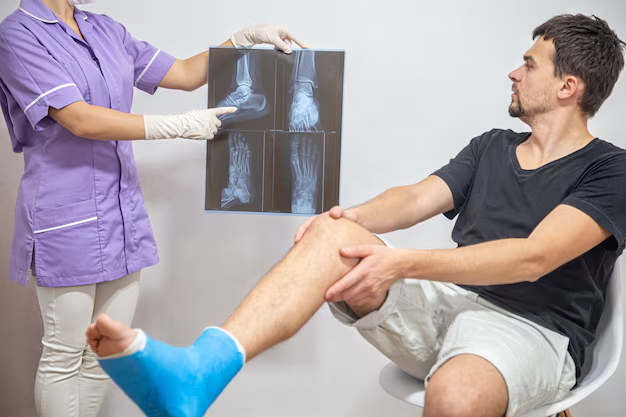Your Guide to How Do You Test For Osteoporosis
What You Get:
Free Guide
Free, helpful information about Osteoporosis FAQ and related How Do You Test For Osteoporosis topics.
Helpful Information
Get clear and easy-to-understand details about How Do You Test For Osteoporosis topics and resources.
Personalized Offers
Answer a few optional questions to receive offers or information related to Osteoporosis FAQ. The survey is optional and not required to access your free guide.
Discovering How to Test for Osteoporosis: What You Need to Know
Osteoporosis often creeps up silently, leaving bones fragile and prone to fractures. For those over 50 or with specific risk factors, knowing how to test for osteoporosis is crucial for maintaining bone health. Understanding the testing process can lead to proactive health management and provide insights into the financial resources available to support your healthcare journey.
Understanding Osteoporosis Testing Methods
The most common test for osteoporosis is the Dual-Energy X-ray Absorptiometry (DEXA) scan. This non-invasive and painless procedure measures bone mineral density (BMD) and helps to predict fracture risk. DEXA scans are typically recommended for:
- Women aged 65 and older and men aged 70 and older, regardless of risk factors.
- Post-menopausal women and men over 50 with a familial history or other risk factors.
- Individuals who have experienced fractures from minor injuries.
Other methods might include ultrasound screenings and quantitative computed tomography (QCT), though these are less common.
Prepare for Your DEXA Scan
A DEXA scan requires minimal preparation:
- Wear comfortable clothing. Avoid garments with metal parts, such as zippers and buttons, as they can interfere with the results.
- Refrain from taking calcium supplements at least 24 hours before the test.
- Inform your healthcare provider if you’re pregnant or have recently undergone other diagnostic tests (e.g., barium exams).
Costs Associated with Osteoporosis Testing
While testing is crucial, it can become a financial concern. The cost of a DEXA scan can vary depending on location and healthcare provider, typically ranging from $125 to $300 without insurance.
Fortunately, Medicare and most private insurances cover the cost for eligible individuals. It’s always wise to check with your provider about coverage options. If insurance isn't an option, explore community health centers or government programs that offer reduced-cost screenings.
Explore Financial Assistance Programs
Dealing with osteoporosis or any long-term health condition can stretch your finances. Fortunately, there are various programs and resources available to help manage these costs:
Medicare and Medicaid: These government-funded programs can provide coverage for osteoporosis testing and treatment for eligible individuals.
Non-Profit Organizations: Some non-profits focus on bone health and offer financial aid or free bone density testing programs.
Savings Cards or Discount Programs: Look into options such as prescription savings cards that might also offer discounts on diagnostic tests.
Community Health Initiatives: Local health departments and clinics often conduct free or low-cost osteoporosis screenings during health fairs or special events.
Loan Programs or Payment Plans: Some healthcare providers offer flexible payment plans to make testing and treatment more affordable.
These resources ensure you can prioritize your bone health without breaking the bank, allowing you to focus on long-term well-being.
Investing in Your Future Health
Testing for osteoporosis is a critical step in safeguarding your health. Not only does it allow for early detection and management, but it also presents an opportunity to evaluate financial options that can support your healthcare needs. Embrace the resources available to ensure your bones—and your finances—remain strong.
Explore Your Financial and Educational Options
- 💰 Medicare & Medicaid: Government aid for eligible testing and treatment costs.
- 📈 Prescription Savings Programs: Check for discounts on healthcare services.
- 🏥 Non-Profit Support: Seek non-profits dedicated to bone health for financial aid.
- 🔍 Community Health Fairs: Attend for complimentary or affordable screenings.
- 💳 Healthcare Payment Plans: Ask providers about flexible payment solutions.
Taking these steps not only enhances your physical health but also empowers your financial well-being. Prioritize your health today to ensure a stronger tomorrow.
What You Get:
Free Osteoporosis FAQ Guide
Free, helpful information about How Do You Test For Osteoporosis and related resources.

Helpful Information
Get clear, easy-to-understand details about How Do You Test For Osteoporosis topics.

Optional Personalized Offers
Answer a few optional questions to see offers or information related to Osteoporosis FAQ. Participation is not required to get your free guide.


Discover More
- a Nurse Is Caring For a Client Who Has Osteoporosis.
- a Percutaneous Is Performed To Treat Osteoporosis Related Compression Fractures
- Can Alcohol Cause Osteoporosis
- Can I Do Pilates If I Have Osteoporosis
- Can I Reverse Osteoporosis
- Can Men Get Osteoporosis
- Can Osteoporosis Affect Teeth
- Can Osteoporosis Be Cured
- Can Osteoporosis Be Painful
- Can Osteoporosis Be Reversed
